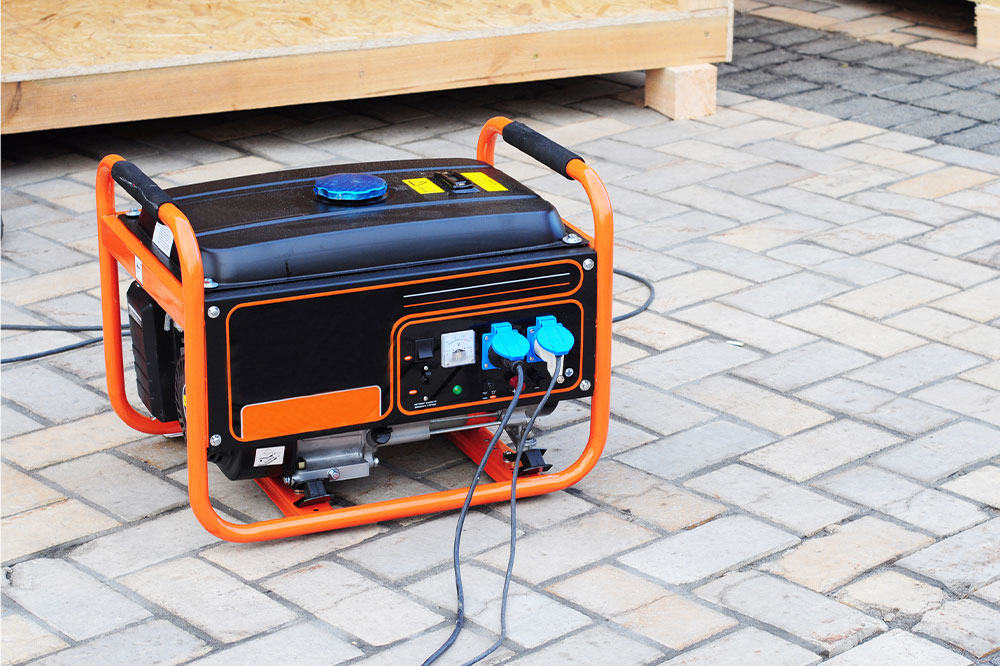Backup Generators – Types, Functions and Top Brands

In this day and age, it is important to stay prepared for any adversity and emergency. This is why having a home backup generator can help you fight unexpected power outages and emergencies. That being said, choosing a generator is not always an easy task. Read on to learn more about backup generators, the types, how they work, popular brands, and tips to choose the right one for your home.
Overview of backup generators
A backup generator, also known as a standby generator, is a power solution that allows any commercial, business, industrial, and domestic facility to continue working during a power outage. These generators are usually fixed in a separate space, mainly used in cases of emergencies such as natural or man-made disasters. They are also suitable for use when there is overloading in the electric grid, which can lead to power shutdowns in the area. They are reliable for many critical systems and functions. Standby generators are usually stand-alone devices and can be run on different types of fuel.
In domestic situations, temporary loss of power can be tackled with batteries-lights or even small candles. But, in places where extended outages are common features, backup generators are a great idea. They can help restore power to the different appliances in the home and even help you to use critical equipment and keep your security systems up and running. While most generators are stationary, you can also get portable generators that are smaller and usually attached to a pair of wheels which makes it easy to move around.
Different types of backup generators
There are different types of backup generators available in the market. These types are based on the type of fuel or source that is used to generate electricity and keep the appliances and systems running. The three main types include:
Diesel standby generators
Diesel standby generators are the most common choice of generators for industrial purposes. These generators work completely independently from the grid and even have their storage for fuel. However, this independent storage often means that you need more refills compared to other types of backup generators. This type of generator is a lot more stable and comes with a long life with few maintenance requirements. This is what makes them so appealing to many industrial areas and buildings. On the downside, diesel generators generate less noise than gas generators. This is why many of them come with sound-roofing or sound-absorbing enclosures. This prevents noise pollution and also tackles disruptions to the area.
Gas standby generators
Natural gas generators are the most common type of generators that are used in industrial, commercial, and domestic areas. These types of generators can be fueled by propane or natural gas. In any case, the generator needs a constant line of gas fuel. Only then will it be able to generate continuous power. Having a continuous line also ensures that the generator works a lot longer. On the other hand, being connected to a single and limited tank could limit the system’s capabilities. That being said, having a constant gas line can be very risky compared to the storage tank of diesel fuel. In times of emergency or disaster, natural gas backup generators are also more prone to fires and other hazards. Gas generators also tend to have a short lifespan compared to diesel standby generators. But, proper maintenance and welfare can extend the general life expectancy of the system.
Bi-fuel standby generators
Bi-fuel standby generators integrate the best parts of a natural gas backup generator and a diesel generator. This system generates electricity based on whichever fuel source is available at that particular time. This allows you to save time and money, and obtain maximum efficiency at the time of a power outage.
How do backup generators work?
Backup generators consume fuel (diesel or gas) to create electrical energy that can be used across all the appliances in your home or any commercial area. To make this possible, generators rely on something known as a transfer switch. These devices allow the home to swap its power source from the utility to the generator and back to the utility. If you have an automatic transfer switch, this transition occurs automatically, which is when the generator starts working and creating power. In some cases, you may also have a manual transfer switch where you have to swap out the power source for your home by yourself.
Tops brands and deals on backup generators
If you’re looking to purchase a standby generator for your home, there are a number of options for you to choose from. One popular brand of standby generators is Champion. Their machines come with great pricing and excellent warranty periods. Champion products are also known to produce less noise pollution and effective power sources. Another popular brand of backup generators is Generac. This brand makes top-notch standby generators that are perfectly suitable for the home. They have great noise-muffling technology, effective electricity production, and switching systems. Most importantly, they are decently priced compared to other standby generators brands in the market.
Things to keep in mind when buying backup generators
When you’re choosing backup generators, you need to look for three things. The first thing to keep in mind is your power requirement whenever there is an outage. Are you comfortable running only the important appliances and devices, or do you want your power in your whole home? The second thing to keep in mind is the fuel source. Are you comfortable with natural gas, which will tap into your existing gas line? Or do you want a diesel or bi-fueled system instead? You also need to pay attention to the installation process and the costs involved before you make your decision. Lastly, check out backup generator deals to get the best price on the system.






